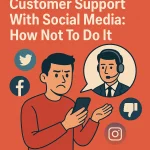No tracking, targeted advertising, or personal profiling. No search history, and no sharing of user data with advertisers. Unbiased results, untainted by sponsored entries. Encryption and timed expiration. The ability for a business to integrate the software into its own products.
These are the features and functions of OneSearch, Verizon Media’s entry into the search engine market.
Publications have referred to it as a direct competitor to DuckDuckGo. At even a glance, one can certainly see the merits of that argument. Both search engines make a point of not storing and sharing user data, and both are supported by contextual advertisements based on search results.
The only real difference, aside from OneSearch’s advanced encryption and business integration functionality, is that DuckDuckGo is the more established of the two. There’s also the fact that, as noted by news agency ValueWalk, DuckDuckGo has never seen a breach. The same cannot be said of Verizon, which also owns its own massive ad network which it could use for targeting through OneSearch.
That’s neither here nor there.
We aren’t interested in talking about how the two search engines stack up against one another. We’re here to ponder over how the introduction of OneSearch might impact the search engine optimization (SEO) space.
It’s no secret that in recent years, there’s been a concerted push towards greater ownership of personal data. Towards greater digital privacy, particularly in the European Union. It’s also no secret that purely from an advertising and marketing standpoint, this push makes things a bit more difficult.
Per the tech publication CNet, even companies like Google are feeling the pressure, adding controls, checks, and balances for users who want to delete the monumental amounts of data it’s gathered about them. If that sounds like something you want to do yourself, the article contains guidelines on doing so. On the wider scale, if this push continues unabated as it has, then it is not outside the realm of possibility that customer and demographic data may cease to be a reliable source of information when determining website content.
That doesn’t mean you can no longer perform audience research, of course. Just that you’ll need to do it in the more traditional sense. By interacting with your customers, particularly over social media and other, similar platforms.
In the short term, OneSearch is just one more privacy-focused search engine throwing its hat into the ring. In that regard, it’s likely to have very little impact. As part of a long-term trend towards ownership of private data, however?
It has the potential to change the face of SEO.



